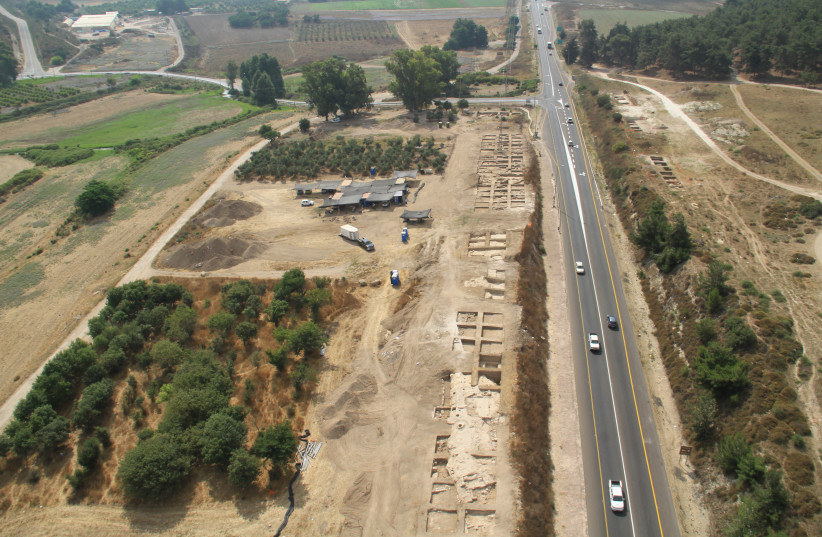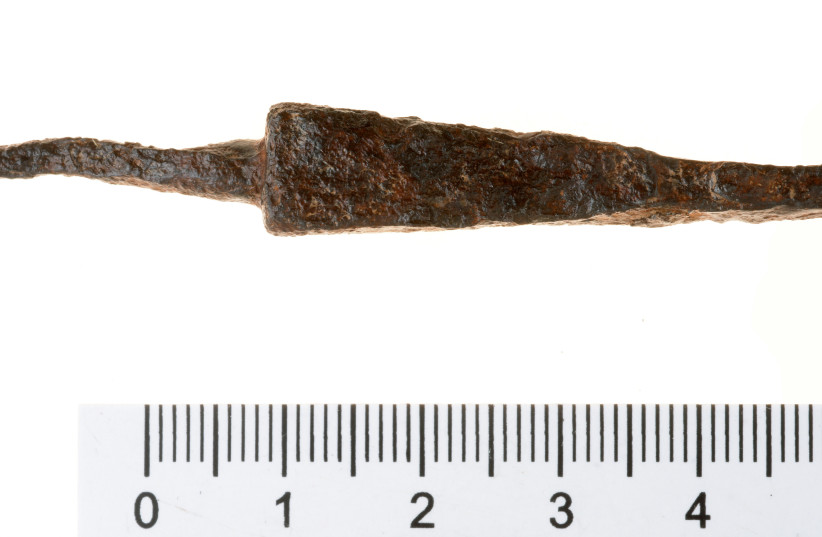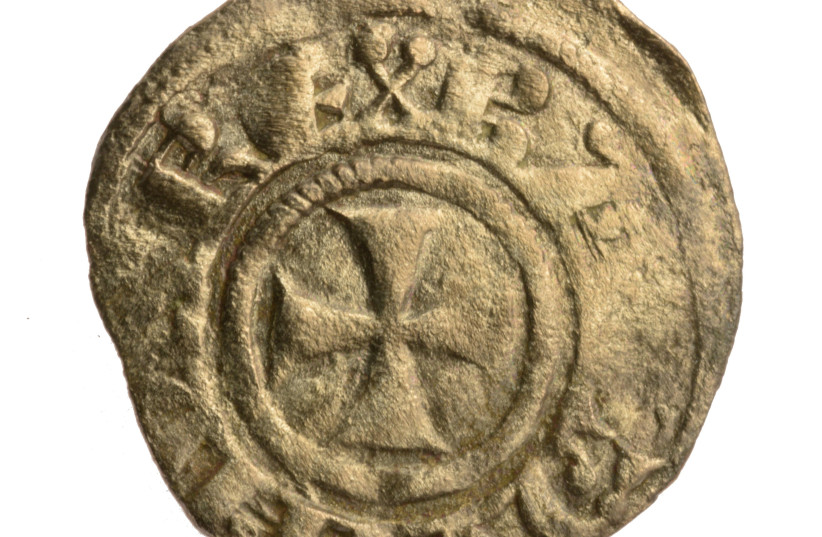First archaeological evidence for Crusader camp found in Israel
A team of Israeli archaeological researchers identified a Crusader encampment in the area of the Tzipori Springs in Galilee, the first time that a Crusader encampment was found in the field.
For a certain period it placed Jerusalem under Christian rule, a period documented by a vast corpus of historical sources as well as massive structures such as castles and fortresses left by the Crusaders in the region. However, very little remains to testify moments of transitions, such as battles and encampments.
In recent years, while workers were expanding Route 79 that
connects the coast with Nazareth, Israel Antiquities Authority
archaeologists Nimrod Getzov and Ianir Milevski from the Prehistory
Department conducted the required salvage excavation.
Arrowhead found at the springs of Tzipori. (credit: CLARA AMIT/ISRAEL ANTIQUITIES AUTHORITY)
“The
area along Route 79 was known as the site of the Frankish encampment
ahead of the battle of Hattin in 1187, as well as for other encampments
by both the Crusaders and the Muslims during a period of 125 years,”
said Dr. Rafael Lewis, a senior lecturer at Ashkelon Academic College
and a researcher at Haifa University. “For this reason, I was brought on
board to focus on the remains from that era. It was a very exceptional
opportunity to study a medieval encampment and to understand their
material culture and archaeology.”
According
to chronicles from the time, the Christian army stationed in the area
of the Tzipori Springs for around two months before the crucial battle
that allowed the troops led by Sultan Saladin to reconquer much of the
region, including Jerusalem.
The archaeologists unearthed hundreds of metal artifacts, and were able to study their relations to the landscape.
“We used a discipline known as ‘artifact distribution analysis’,”
he noted. “We started by reconstructing the landscape as it
approximately looked like at the time; we considered where the artifacts
were found; and compared what we learned to historical records.”
Lewis said that although all of the troops at the time fought under
the king, they did not serve in a centralized army – different groups
of knights would fight together, each having their own camp and each
following the orders of their commander.
The remains mirrored this reality.
“In the site we found different clusters of artifacts,” he said.
The majority of artifacts
the archaeologists uncovered were horseshoe nails, both of a local type
and of a more sophisticated European type, which were prevalent closer
to the springs.
“We
saw that the closer we got to the water, the richer the material
culture became,” Lewis said. “We can probably deduce that those who
belonged to a higher socio-economic status encamped by the spring.
Changing those nails probably represented the main activity in the camp.
Nobody wanted to find himself in the battle on a horse with a broken
shoe.”
Coin of Baldwin III (1143–1163 CE), Jerusalem, obverse. (credit: CLARA AMIT/ISRAEL ANTIQUITIES AUTHORITY)
The
archaeologists were surprised to find very little remains of other
activities that might have been expected in relation to the life at the
encampment, such as cooking pots. However, this also suggests what
objects were brought back to castles and permanent settlements when the
encampment was packed up.
Based
on the findings in Tzipori, researchers in the future will be able to
examine other sites to look for archaeological remains.
“I’m
intrigued to understand more about Crusader encampments,” Lewis said.
“I believe that the study of military camps has the potential to allow
us to understand much more about the period and its culture.”




No comments:
Post a Comment
Stick to the subject, NO religion, or Party politics